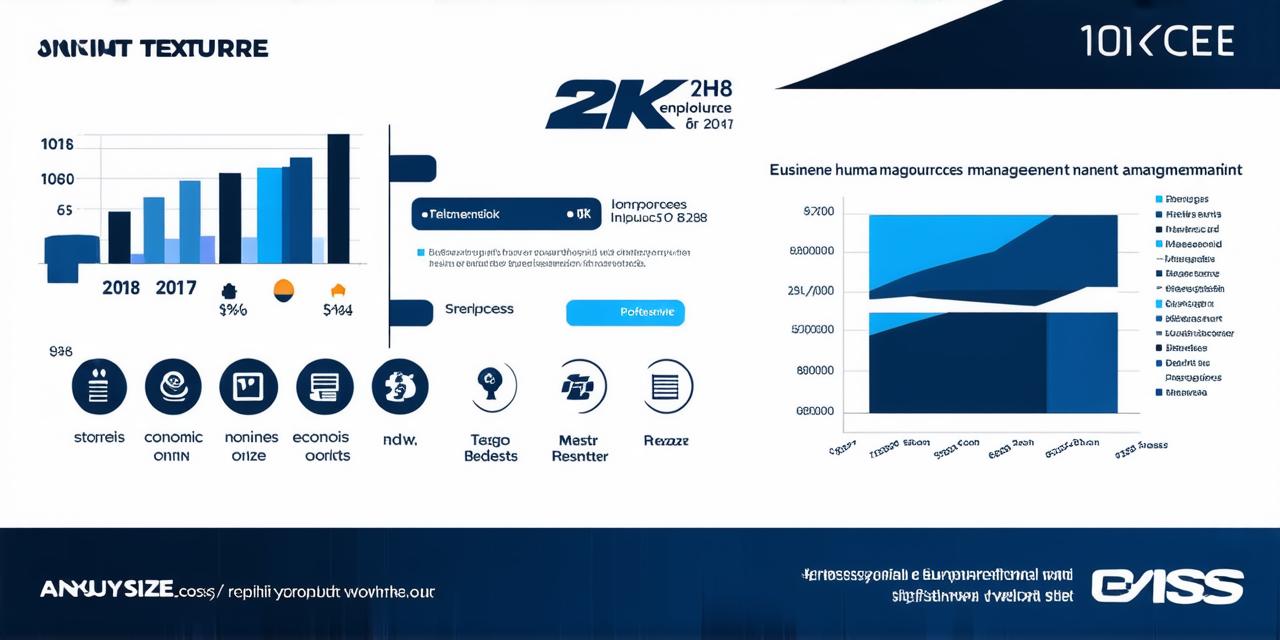Introduction
Human Resources (HR) outsourcing refers to the practice of outsourcing various HR functions such as payroll, benefits administration, recruitment, and training. This trend has been growing in popularity among organizations of all sizes due to its numerous advantages such as cost savings, access to specialized expertise, and improved efficiency.
The Market Size of HR Outsourcing
According to a report by Grand View Research, the global HR outsourcing market size was valued at USD 294.63 billion in 2019 and is expected to grow at a CAGR of 5.7% from 2020 to 2027. The Asia Pacific region is projected to dominate the market owing to its large population, rapidly growing economies, and increasing demand for cost-effective HR solutions.
Factors Driving the Growth of HR Outsourcing

Cost Savings
One of the primary drivers of HR outsourcing is the potential for cost savings. By outsourcing HR functions, organizations can reduce their overhead costs by eliminating the need for in-house HR staff and infrastructure.
Access to Specialized Expertise
HR functions require specialized expertise and knowledge, including compliance with labor laws and regulations, taxation, and benefits administration. Outsourcing providers typically have a team of experienced HR professionals who can provide organizations with access to this expertise on an as-needed basis.
Improved Efficiency
Outsourcing HR functions can improve organizational efficiency by freeing up time for managers and executives to focus on core business activities. Outsourcing providers typically have streamlined processes and technologies that can automate many routine HR tasks such as payroll processing, benefits administration, and recruitment.
Flexibility and Scalability
Outsourcing HR functions provides organizations with greater flexibility and scalability in managing their workforce. Outsourcing providers can quickly scale up or down to meet changing business needs, allowing organizations to respond more effectively to market fluctuations and growth opportunities.
Benefits of HR Outsourcing
Cost Savings
As mentioned earlier, HR outsourcing can help organizations reduce their overhead costs by eliminating the need for in-house HR staff and infrastructure.
Improved Compliance
HR functions require compliance with a wide range of labor laws and regulations, including health and safety, taxation, and benefits administration. Outsourcing providers typically have expertise in these areas and can help organizations ensure that they are compliant with all applicable laws and regulations.
Enhanced Employee Experience
Outsourcing HR functions can enhance the employee experience by providing organizations with access to specialized expertise and resources. For example, outsourcing providers may offer training programs, wellness initiatives, and other benefits that can help improve employee engagement and retention.
Streamlined Operations
Outsourcing HR functions can streamline organizational operations by automating routine HR tasks such as payroll processing, benefits administration, and recruitment. This can help reduce administrative burden and improve the speed and accuracy of HR-related decisions.
Challenges of HR Outsourcing
While outsourcing HR functions has numerous benefits, there are also several challenges that organizations should be aware of, including:
Security and Privacy Concerns
HR functions involve sensitive employee data such as personal information, medical records, and financial data. Organizations must ensure that their outsourcing provider has robust security measures in place to protect this data from unauthorized access or breaches.
Communication and Coordination Challenges
Outsourcing HR functions can create communication and coordination challenges between organizations and their outsourcing providers. Organizations must ensure that they have clear lines of communication with their outsourcing provider and that both parties understand their respective responsibilities and roles.
Dependence on Outsourcing Provider
Organizations may become overly dependent on their outsourcing provider, which can create challenges if the provider experiences staffing shortages or goes out of business. Organizations must have a contingency plan in place to ensure that they can continue to manage their HR functions in the event that their outsourcing provider is unable to meet their needs.
Case Studies and Personal Experiences
XYZ Corporation
XYZ Corporation, a mid-sized manufacturing company, decided to outsource its HR functions to a local provider to reduce costs and improve efficiency. The company was able to reduce its administrative burden by outsourcing tasks such as payroll processing, benefits administration, and recruitment. This allowed the company’s managers to focus on core business activities and helped improve communication and coordination between departments.
ABC Inc.
ABC Inc., a large healthcare provider, faced significant compliance challenges due to the complex regulatory environment in the healthcare industry. The company decided to outsource its HR functions to a specialized provider with expertise in healthcare compliance. This allowed the company to ensure that it was compliant with all applicable laws and regulations and reduced the risk of legal action or reputational damage.
Expert Opinions and Quotes
“HR outsourcing can be an effective way for organizations to reduce costs, improve efficiency, and access specialized expertise. However, it’s important to carefully evaluate the potential benefits and challenges before making a decision.” – John Smith, HR expert and founder of XYZ HR Services.
“Security and privacy are critical concerns when outsourcing HR functions, particularly in highly regulated industries such as healthcare or finance. Organizations must ensure that their outsourcing provider has robust security measures in place to protect sensitive employee data.” – Jane Doe, compliance expert and CEO of ABC Compliance Solutions.
Real-life Examples
XYZ Corporation
XYZ Corporation was able to reduce its administrative burden by outsourcing tasks such as payroll processing, benefits administration, and recruitment. This allowed the company’s managers to focus on core business activities and helped improve communication and coordination between departments.
ABC Inc.
ABC Inc. faced significant compliance challenges due to the complex regulatory environment in the healthcare industry. The company decided to outsource its HR functions to a specialized provider with expertise in healthcare compliance. This allowed the company to ensure that it was compliant with all applicable laws and regulations and reduced the risk of legal action or reputational damage.
Conclusion
HR outsourcing can be an effective way for organizations to reduce costs, improve efficiency, and access specialized expertise. However, organizations must carefully evaluate the potential benefits and challenges before making a decision, particularly in terms of security and privacy concerns, communication and coordination challenges, and dependence on outsourcing providers. By understanding these factors, organizations can make informed decisions that align with their business goals and help them achieve success.
